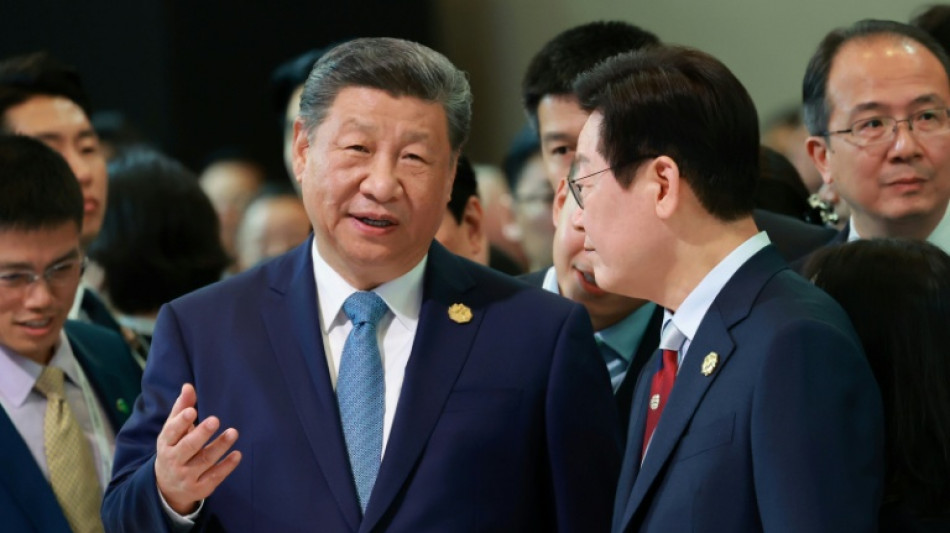

China's Xi to meet South Korean leader, capping APEC summit
Chinese President Xi Jinping will meet South Korean counterpart Lee Jae Myung on Saturday, capping an Asian summit at which Beijing and Washington agreed to a truce in their trade war.
On the final day of his first trip to South Korea in over a decade, Xi will sit down with Lee on the sidelines of the APEC (Asia-Pacific Cooperation Organisation) summit, held this year in the city of Gyeongju.
On Thursday, Xi met with Trump in the nearby city of Busan, with the two agreeing to dial down a trade dispute that roiled markets and disrupted global supply chains.
Trump chose to return to the United States following those talks, leaving the Chinese leader to take centre stage at a summit in which he has framed Beijing as the defender of the multilateral order against "hegemonism".
Xi met on Friday with Canadian Prime Minister Mark Carney on the sidelines of the meet -- the first formal talks between the two countries' leaders since 2017.
He told the Liberal leader he was determined to work together to get relations back on the "right track" and invited Carney to visit China.
Xi also sat down with Japan's premier Sanae Takaichi for the first time since she was appointed last month.
She said she told Xi that she wanted a "strategic and mutually beneficial relationship between Japan and China".
But she told reporters that she also raised a number of thorny issues with the Chinese leader, saying that it was "important for us to engage in direct, candid dialogue".
The Chinese leader now turns his attention to the South Korean President in what will be their first sit-down meeting since Lee's election in June.
- Lee to 'reassure' Beijing -
Seoul has long trodden a fine line between top trading partner China and defence guarantor the United States.
Relations with China soured in 2016 after Seoul agreed to deploy the US-made THAAD missile defense system.
Beijing hit back with sweeping economic retaliation, restricting South Korean businesses and banning group tours.
Cultural spats -- including China's claims over the origins of the Korean staple dish Kimchi -- have also soured public opinion against Beijing.
"Public opinion matters in foreign policy," Gi-Wook Shin, a Korea expert and sociology professor at Stanford University, told AFP.
"Public perception of China in South Korea is highly negative. I suppose the Chinese view of South Korea is not favourable either," he said.
South Korea -- which this week also agreed a multibillion dollar economic deal with the United States -- remains heavily dependent on trade with its vast Asian neighbour.
Lee will likely try to "reassure Beijing that South Korea's alignment with the United States does not preclude pragmatic economic engagement with China," Seong-Hyon Lee, a scholar at the Harvard University Asia Center.
The South Korean leader is keen to "seek a measure of economic stability and a more predictable floor in bilateral relations," he told AFP.
Also hanging over relations are Beijing's close ties with North Korea, which remains technically at war with the South.
Lee plans to raise the issue of "denuclearisation" with the Chinese leader, as well as broader peace efforts on the peninsula, Seoul's presidential office said.
Ahead of Lee and Xi's meeting, Pyongyang dismissed Seoul's hopes for denuclearisation as a "pipedream" which "can never be realized even if it talks about it a thousand times".
T.al-Wazzan--BT



